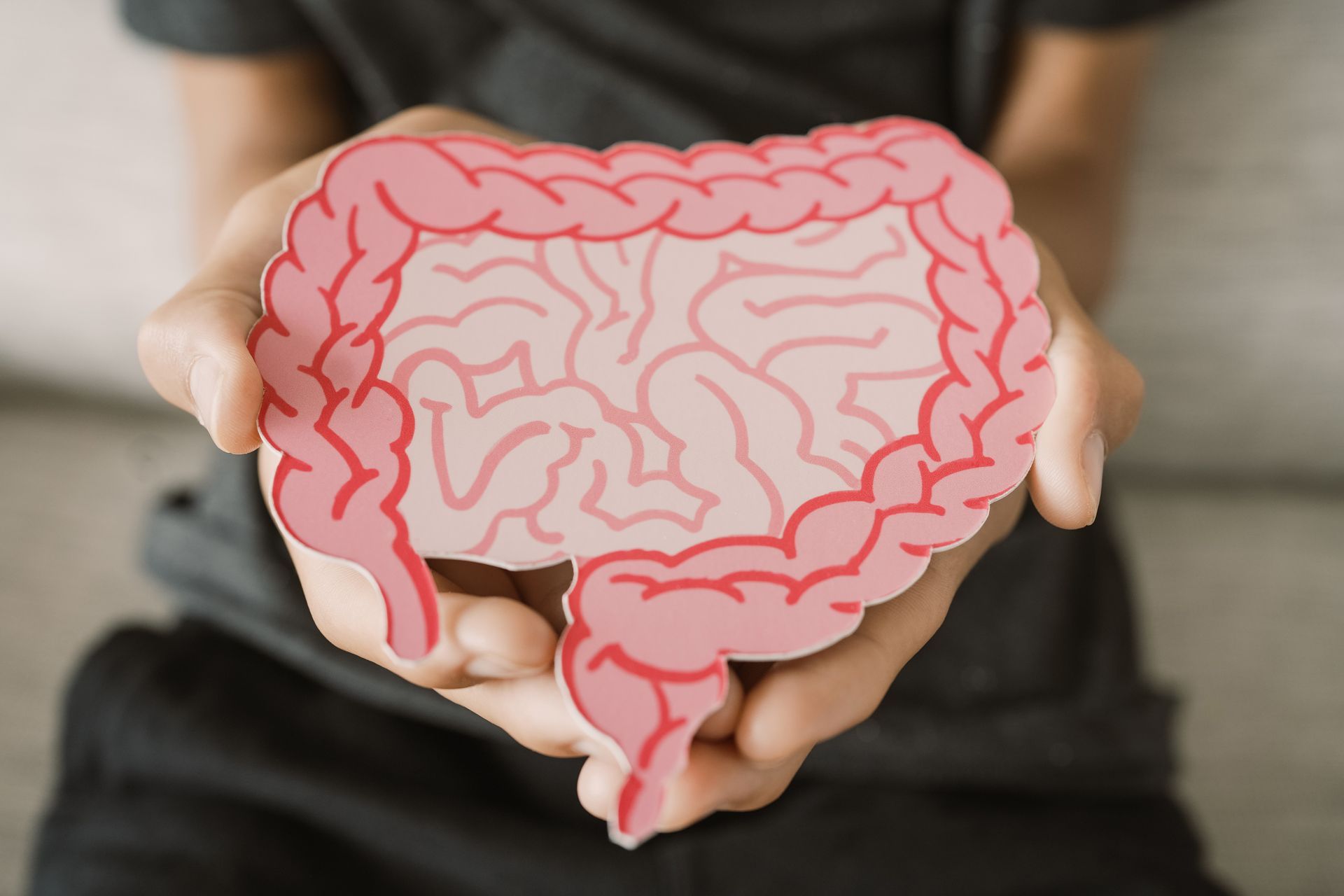CROHN'S DISEASE IN NORTHWEST FLORIDA
When inflammation occurs in your digestive tract, it can lead to abdominal pain, fatigue, weight loss, and diarrhea. Digestive tract inflammation is commonly referred to as inflammatory bowel disease, or IBD. A common and severe type of IBD is known as Crohn’s Disease. Let’s take a closer look at everything you need to know about this digestive condition.
HAVE QUESTIONS ABOUT CROHN'S DISEASE?
-
What is a Crohn's Disease?
Crohn’s Disease is a specific type of inflammatory bowel disease. This type of inflammation can impact different areas of the digestive tract for different patients, ultimately spreading into the deeper layers of the bowel.
A condition like Crohn’s Disease can be debilitatingly painful, and its potential complications can become life-threatening. This disease can affect any area of your large or small intestine or varying segments of each.
-
What Causes Crohn’s Disease?
While the direct cause of Crohn’s Disease isn’t determined, a couple of factors are believed to be related to its development. Immune system issues are one of the key elements involved with the development of Crohn’s Disease. It is believed that viruses or bacteria can trigger this condition. When the immune system responds to a threat, it can also attack the cells in your digestive tract as well, causing inflammation.
Genetic factors also play a role in the development of Crohn’s Disease. If this condition runs in your family, you may be more susceptible to experiencing it yourself.
-
What are the Symptoms of Crohn’s Disease?
As with any digestive condition, symptoms can vary from mild to severe but most commonly develop gradually. Signs and symptoms of an active case of Crohn’s Disease include:
- Fever
- Fatigue
- Diarrhea
- Bloody stool
- Cramping
- Abdominal pain
- Sores in your mouth
Other, less typical signs include:
- Kidney Stones
- Iron Deficiency
- Inflammation of the joints, eyes, and skin
- Inflammation of the bile ducts or liver
While these symptoms typically occur gradually, they can come on suddenly as well. It is also not uncommon to have periods of time when these symptoms diminish during remission.
-
What Risk Factors Make Developing Crohn’s Disease More Likely?
If you are currently experiencing any of these risk factors, it can heighten your possibility to develop Crohn’s Disease. Age is a key risk factor. Although you can develop this condition at any age, it tends to happen when you are younger, before the age of 30. Your ethnicity can also influence your susceptibility. Smoking tobacco is a habit that can lead to more severe symptoms of this disease. Lastly, the frequent use of nonsteroidal anti-inflammatory drugs like ibuprofen, diclofenac sodium, and naproxen sodium can actually cause inflammation of the digestive tract. The common medicines in these categories include Aleve, Advil, Motrin, and others.
-
What Complications Can Arise from Crohn’s Disease?
Once you experience Crohn’s Disease, corresponding health complications can occur. These complications include:
- Fistulas – When ulcers extend through the intestinal wall, fistulas are created. When fistulas occur, food can bypass these sections of the bowel, mitigating absorption.
- Colon cancer – Crohn’s Disease can amplify your risk of developing colorectal cancer.
- Bowel obstruction – Because this condition can affect the thickness of your intestinal wall, the scarring and subsequent narrowing involved can actually block the flow of your digestive tract.
- Ulcers – Open sores, or ulcers, can develop due to the chronic inflammation that Crohn’s causes. These ulcers can occur anywhere along your digestive tract.
- Other health problems – Crohn’s Disease can create problems in other parts of the body outside of the gastroenterological system as well. Arthritis, anemia, liver disease, and skin disorders can also be complications caused by a Crohn’s Disease diagnosis.
-
When Should You See a Doctor for Crohn’s Disease Symptoms?
It is essential to recognize the signs of Crohn’s Disease so that you can seek treatment from a gastroenterologist. If you are experiencing a change in your bowel habits or have noticed abdominal pain, unexplained fever or weight loss, nausea and vomiting, bloody stool, or frequent occurrences of diarrhea, you should consult a physician
-
How is Crohn’s Disease Treated?
There is currently no cure for Crohn’s Disease; however, through the care of a gastroenterologist, there are several treatment options that address the symptoms and can lead to remission. Nutrition therapy is the application of a special diet that features the nutrients necessary to address Crohn’s symptoms and combat bowel inflammation. Immune system suppressors like Azathioprine, Methotrexate, and Mercaptopurine can also effectively prevent inflammation due to immune responses. Anti-inflammatory drugs are the first line of defense to counteract the inflammation that Crohn’s Disease causes. Corticosteroids and Oral 5 aminosalicylates are both effective in reducing inflammation. If these medicinal or therapeutic tactics prove ineffective, surgery may be necessary. These surgical procedures remove the damaged sections of the digestive tract.
READY TO SCHEDULE AN APPOINTMENT?
CROHN'S DISEASE BLOGS


CONTACT
850-763-5409
ADDRESSES
4 LOCATIONS
204 E 19th Street, B, Panama City
12216 Panama City Beach Pkwy, D, Panama City Beach
4295 3rd Ave, Marianna
101 Good Morning St., 109B, Port St. Joe
Subscribe to our newsletter:
subscribe to our newsletter
We will get back to you as soon as possible.
Please try again later.

